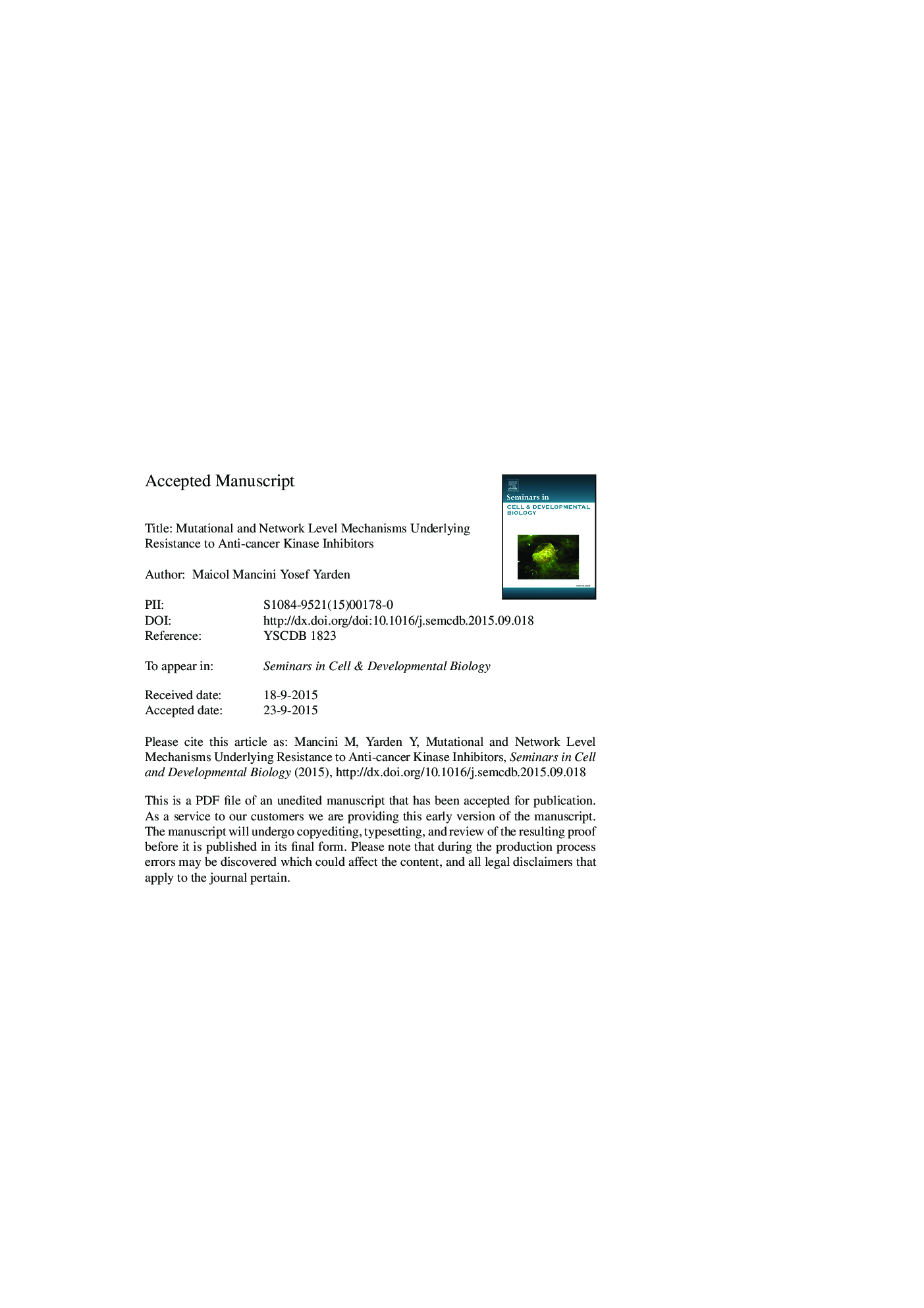| Article ID | Journal | Published Year | Pages | File Type |
|---|---|---|---|---|
| 8480217 | Seminars in Cell & Developmental Biology | 2016 | 32 Pages |
Abstract
Tyrosine-specific and other protein kinases are embedded in signaling networks critical for progression of tumors of all types. Hence, kinase inhibitors have nucleated a major arm of personalized cancer therapy. Unfortunately, almost all kinase inhibitors evoke resistance within a year or two, due to secondary mutations, and other alterations within the targeted kinase, or due to emergence of feedback regulatory loops that compensate for extinguished kinases. We review clinically approved kinase inhibitors and the emergence of resistance in leukemia, melanoma, lung and breast tumors, and draw parallel lines in terms of secondary mutations and compensatory mechanisms. Currently emerging are pharmacological strategies able to circumvent resistance and re-sensitize patients to therapeutic treatments. They include second and third generation inhibitors that overcome new mutations, novel drug combinations that simultaneously block the primary oncogenic pathway and compensatory routes, as well as monoclonal antibodies. Deeper understanding of biological signaling networks and their responses to perturbations will aid in the development of effective therapies for patients with cancer.
Keywords
FGFRCCHGFCLLDTCPDGFPolycythemia veraRTKPKICMLNRGERKmTORPI3KEGFRGatekeeper mutationHER2mAbDUSPIgf1ALKMonoclonal antibodySCLCfeedback regulationGastrointestinal stromal tumorEMTdual specificity phosphataseCNSnetwork biologyColorectal cancerSmall-cell lung cancerNSCLCNon-small cell lung cancercentral nervous systemHepatocyte growth factorVascular endothelial growth factorVascular Endothelial Growth Factor (VEGF)platelet-derived growth factorinsulin-like growth factor 1phosphatase and tensin homolog deleted on chromosome 10Phosphatidylinositol 3-kinaseAnaplastic lymphoma kinaseAcute lymphoblastic leukemiaChronic lymphocytic leukemiachronic myelogenous leukemiaGistProtein kinase inhibitorNeuregulinSignal transductionmammalian target of rapamycinALLProtein kinasePtenDifferentiated thyroid carcinomaRenal cell carcinomaCRCextracellular regulated kinaseReceptor Tyrosine KinaseEpidermal growth factor receptor
Related Topics
Life Sciences
Biochemistry, Genetics and Molecular Biology
Cell Biology
Authors
Maicol Mancini, Yosef Yarden,
